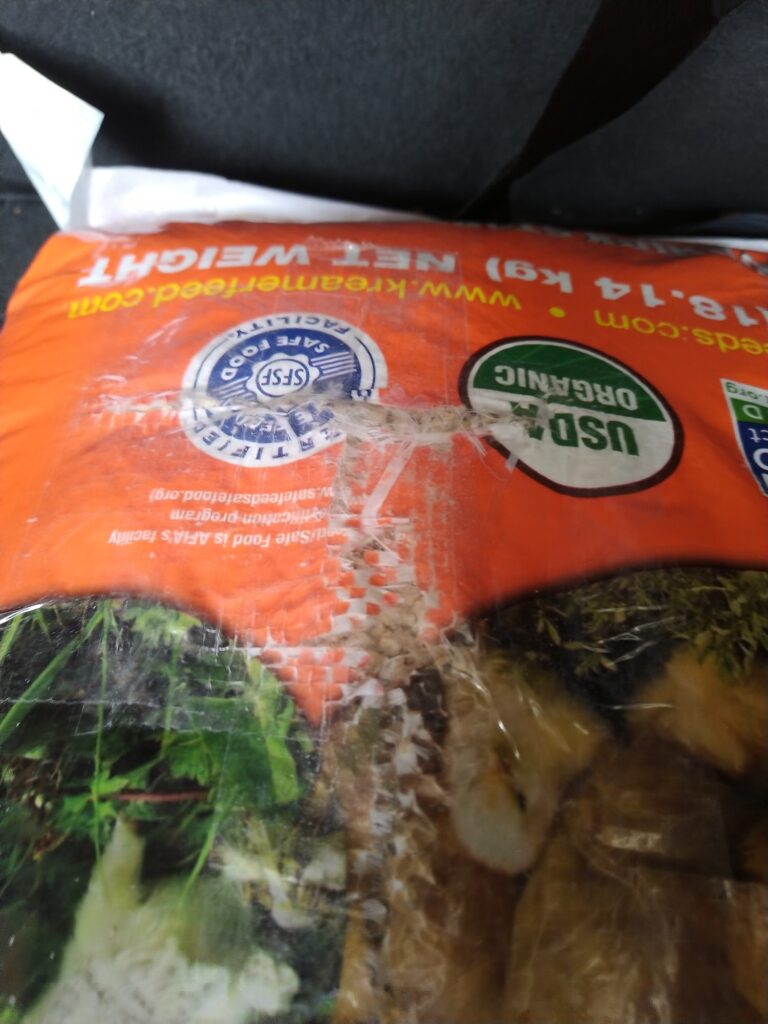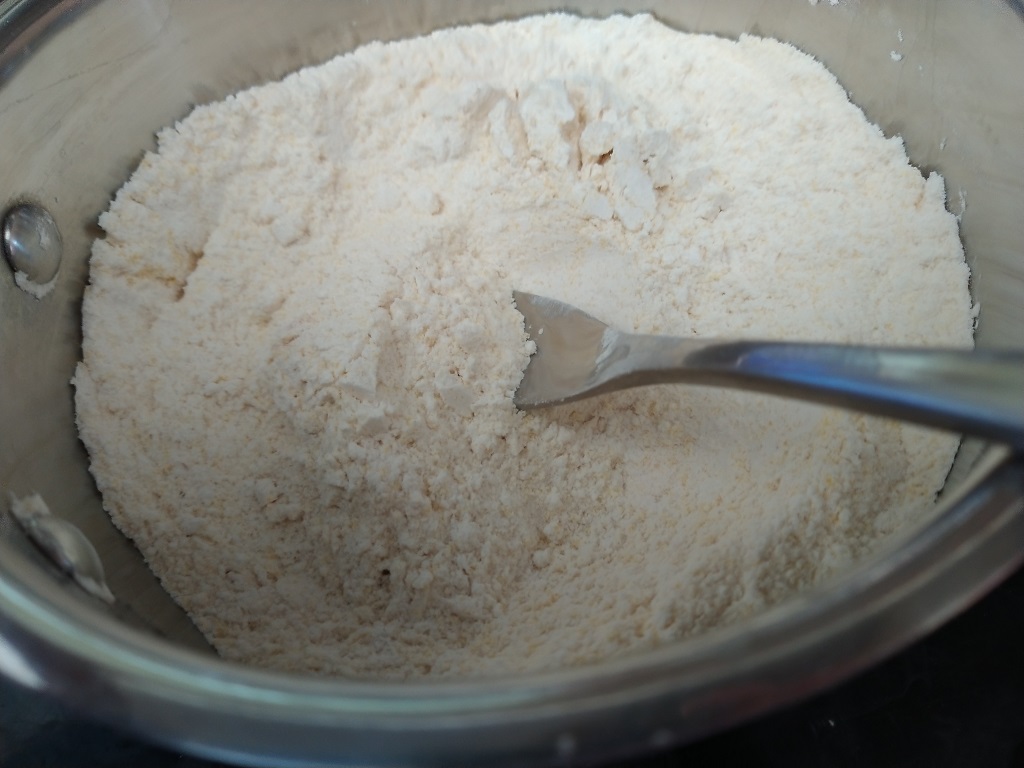Category: Miscellaneous
Math Time — COVID Edition
Scott’s dad gets on our cases about being paranoid hypochondriacs (or whatever) because we’re still wearing masks and have Anya in online school for another year. The governor dropped the health orders, after all. Anya is too young to be vaccinated, but he’s safe … and kids don’t get sick anyway. Now, I don’t believe the latter two “facts” — kids do get sick, even if it’s less virulent. And I’ve never seen anything published that indicates vaccinated individuals don’t spread the virus. Just that they don’t feel unwell (which, in my mind, makes them more likely to spread it ’cause they don’t know they are sick … the Yankees having so many vaccinated people test positive sticks in my mind. They wouldn’t have known they were sick if it weren’t for what I assume is routine team-wide testing). And it’s difficult to explain to someone who has already made a decision … but the math just doesn’t support the “it’s all good” attitude people are adopting. I’m not an epidemiologist — I went to school for theoretical physics and work in computer science. I have done a lot of data mining and analysis, so I’ve got a decent understanding of the math side of epidemiology without any of the “so what do we do about it” medical knowledge. That being said … the math side of it can be helpful.
There’s a rate of spread for infections — computer viruses or human, in fact. There’s an initial rate of spread when no one has any immunity / has patched their computer (R0 to epidemiologist). If one person gets the virus, they give it to x people over the course of their infection. This is where you either see the total number of infected people trend toward zero of infinity — that is, if one infected person infects 0.5 (i.e. for every two infected people, you get one more person infected) … eventually the virus dies out. If one infected person infects ten others? This is a ever increasing progression — those ten each infect ten more for 100 infected people. Who each infect 10 for 1000 infected people. Which doesn’t seem bad — but those each infect 10 for 10,000 infected. Then 100,000. For each iteration, the number of infected people is 10^n — 10,000,000,000 is ten iterations down.
But preventative measures get taken — in one case, a computer virus caused my employer to shut down the LAN facing ports on every router in the company. Techs had to walk around with a fix-it CD, clean up every computer on a subnet, and then request the subnet be returned to the network. And, if we saw the virus propagating from that subnet? It got locked down again. Highly disruptive, but effective. And that’s where we were last spring with stay-at-home orders.
There are less severe precautions — computers have anti-virus software that look for virus-like activity for day zero identification. In human terms, that means we’re washing our hands after coming home from an outing. Or, as of last spring, wearing masks. Any of these precautions reduce the R0 value — but it can be difficult to predict exactly how much these actions will reduce the rate of spread.
Vaccines, on the other hand, have a quantified (and published) impact on spread. That efficacy and the percentage of the population that has been vaccinated scale the R0 value. The effective rate of spread is R0 * (1 – ( (vaccine efficacy) * (% of population that is vaccinated) ) ). If a vaccine prevents infection for half of the people who are exposed, then the effective rate of spread after vaccination is R0 * (1 – 0.5 * % of population that is vaccinated)). If a vaccine can prevent 90% of infections from occurring, the effective rate of spread after vaccination is R0 * (1 – 0.9 * % of population that is vaccinated)).
For convenience, I am going to ignore partially vaccinated individuals because I don’t know how effective a partial dose is at preventing transmission. The R0 published last year was around 3 — with about 40% of the population vaccinated with a 95% effective vaccine, that’s an effective rate of spread around 1.86 without other precautions being taken.
Now my numbers aren’t perfect — but this is almost a best-case effective rate of transmission. Another ten percent or so of the population is half-way vaccinated even if I don’t want to get that granular with my maths. But plenty of people got a 80-something percent effective vaccine, too. And the efficacy of each vaccine is reduced against variants. Having an effective transmission rate hovering around 2 seems, to me, like a premature time to cease taking other precautions.
The hazard of curbside pickup
I’ve had an ongoing problem with the curbside grocery pickup — it’s a great time saver (and basically eliminates off-list purchasing / impulse shopping), and I get the limitations of asking someone else to think for you (I add a note that indicates the exact number of large/small *bunches* of bananas I actually want whilst ordering unit “1” banana, and I know they are not just going to figure it out and get jicama when they’re out of celery root). My problem is that the quality of the food that ends up in my order is absolutely not something I’d have bought. I won’t buy mushy, rotten oranges. Or visibly moldy strawberries. Or meat with huge chunks of fat. I’ve taken to putting in a big order of shelf-stable staples for pickup a few times a year and selecting the perishables myself. And accepting the time / quality trade-off when I ask them to select my produce for me.
Thought that was a problem unique to the grocery store, but we picked up chicken chow from Tractor Supply today. Last time, the 6 pound bag that was brought out instead of a 40 pound bag was really obvious. And quickly corrected. This time? We bought two bags of food — the first one was fine. Upon lifting the first bag out of the car, though, I discovered the second bag. A bag which looks like it was dragged across the warehouse floor and then taped up to retain whatever was left in the bag. This certainly isn’t a bag someone would have put into their cart at full price. I’ve seen other companies slap a discount sticker on a mostly full taped up bag. Unloading the ripped bag of something close to 40 pounds of chicken food, at full price, on a curbside pickup? Kinda sucky!
Luckily, Tractor Supply has excellent customer service policies. I used the ‘contact us’ form to tell them about the problem — and, yeah, I could have just brought it back to the store. But … had I been in the car park when I noticed the bag, I certainly would have asked for the bag to be swapped out. A couple extra minutes was worth it to avoid whatever contaminants got into the bag and whatever amount of food fell out of the bag. Half an hour of driving? Not worth it for what’s probably some warehouse dirt and maybe a pound of missing food. Within a few hours, a customer service rep rang be to apologize for the mangled bag. He refunded the purchase price and issued a gift card for our inconvenience. That’s more than fair.
Home Depot Non-Delivery
We ordered a chest freezer from Home Depot a few weeks ago with delivery expected a few days ago. That date moved out to Friday — no big deal. Prior to placing the order, we chatted with their customer service to verify that home delivery actually meant delivery into the house because there are all sorts of places that are considered “delivered”. And it would suck to get a big chest freezer at the bottom of our driveway and have the company call it delivered. We confirmed, multiple times, that the home delivery service would be able to navigate our narrow driveway and that the item would be delivered into the room of our choosing.
And then the delivery company called today. They only have a 26-foot box truck, so they will deliver the freezer to the bottom of our driveway. Several frustrating calls to Home Depot later — we were hung up on by a very rude agent who just kept telling us that the delivery company is a third party so there’s nothing Home Depot can do about it. And that “delivery” is only to the doorstep. This agent hung up on us. We finally got someone slightly helpful — delivery still means doorstep, and if the third party delivery service only has a 26-foot truck that’s what they have … but this rep was at least pleasant and willing to finish the conversation.
What really bothers me, though, is no one at Home Depot’s customer service seemed interested in knowing that the online chat folks are absolutely telling customers that “home delivery” means into the room of your choosing. Depending on one’s home, this could be a very big difference — like our case where the delivery service wants to leave the box a couple hundred feet down at the bottom of the driveway. We offered to send them the names and chat sessions to ensure agents are getting appropriate training, but nothing. We have, on three separate occasions and speaking with three different agents, been informed that the “home delivery” service means the appliance will be delivered into the room of my choosing — and warned that multiple flights of stairs would be an extra charge.
On Race Norming
I get why race norming is objectionable — but why in the world are they norming at all?! I’d hate if I had some accident & the analysis of my decline was based off of some American norm or a global norm. It’s not like “getting a bunch of concussions” is a black swan event for footballers, either. So why wouldn’t they routinely administer these cognitive tests for each player? Someone puts in a claim? Their current cognitive functionality isn’t compared to some normalized baseline. It’s compared to their documented trajectory.
Unmasking
The CDC’s revised health guidance has a lot of people celebrating — taking off their masks and rejoicing. From a psychological standpoint, I get it. But, from a functional perspective? I don’t get the mask hatred. There’s some work we do outside (cleaning chicken coops, mowing grass, using a chainsaw) where it’s great not to inhale dust and pollen. Since we’ve got masks, we wear them. Even if SARS CoV-2 were completely eliminated from the solar system, I don’t want your cold. Or your flu. Or whatever other respiratory illness.
Before we had Anya, I thought I had an amazing immune system. I was rarely sick — like once every five or ten years. Since Anya started school — preschool, grade school — I’ve learned that I just didn’t have much exposure to pathogens. With a kid in school, everyone in the household was sick basically from November through April. I cannot believe vast swaths of the population spend half of the year sick! This past year, though? Not a sniffle (well, at least not a sniffle until pollen started blowing around in visibly yellow clouds). Why wouldn’t we continue to wear a mask and avoid the gamut of respiratory illnesses?!
Alexa Dungeon Adventure – Lightsaber?
We managed to get a lightsaber in the Dungeon Adventure game. Scott said something like “try to smash the chest with the morningstar”, and a screen came up with the ‘do or do not, there is no try’ and said we had a new weapon. Checked the weapon list and, hey, there’s a super powerful weapon. Damage is 7d6 — so better than the super sword we were hoping to find somewhere in the dungeon.
SNL
I hate that Musk (and many other people) conflate a real condition with permission to be a jerk. You learned something about how your brain or biochemistry work and can use this information to relate better with others? Great! You learned something about how your brain or biochemistry work and take that as permission to mistreat people, defame them, etc? No good. I get PMS. It doesn’t mean I get to scream at people and verbally abuse them for a week every month.
If he had someone reading his tweets before publishing — to ensure he wasn’t, say, about to call a stranger a pedo — I’d be more accepting of the “I have Aspbergers” announcement because the announcement would have continued with “… and I understand that things I don’t consider offensive really bother people, so I’ve taken this concrete step to avoid inflicting harm on others in the future”. Similarly, considering yourself a visionary because you don’t care enough about others to think that their near certain death isn’t a big obstacle to colonizing Mars? I think that’s callousness.
Frog Rescue
Anya rescued a frog today. It had rained overnight, and the frog somehow hopped on top of our chicken tractor. It got stuck in the screen that covers the top of the tractor. Anya managed to pick up the frog, and she carried it back to our pond. It hopped out of her hands when they were close to the pond.
Trout Dough Ball Recipe
Scott’s going fishing, and Anya and I made dough balls for trout bait. Mix 1 cup all purpose flour, 1/3 cup corn meal, and 1-2T garlic powder (I used 1.5T of garlic powder, and it’s really garlicy).
Add enough water to make a firm but slightly sticky dough.
Pinch a bit of dough and roll between your palms to form into blueberry sized balls. Some of ours got a little big!

Drop in boiling water for 1-2 minutes.

Remove and place on napkin/towel (or, in my case, a perforated silicone baking mat) to dry. Cool for an hour then freeze overnight.





